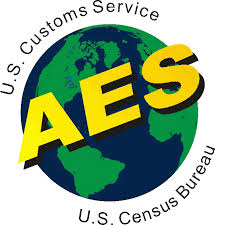
The Automated Export System(AES) is the central point through which export shipment data required by multiple agencies is filed electronically to Customs and Border Protection (CBP), using the efficiencies of Electronic Data Interchange (EDI). AES provides an alternative to filing paper Electronic Export Information (EEI). Export information is collected electronically and edited immediately, and errors are detected and corrected at the time of filing.
AES is a nationwide system operational at all ports and for all methods of transportation. It was designed to assure compliance with and enforcement of laws relating to exporting, improve trade statistics, reduce duplicate reporting to multiple agencies, and improve customer service.
The Automated Export System (AES) is a joint venture between CBP, the Foreign Trade Division of the Bureau of the Census (Commerce), the Bureau of Industry and Security (Commerce), the Directorate of Defense Trade Controls (State), other federal agencies, and the export trade community.
How is AES done?
The export process begins when the exporter decides to export merchandise. The exporter or the authorized agent makes shipping arrangements (booking) with the carrier. The exporter or the authorized agent transmits the commodity (EEI) information using AES. This information can come directly from the exporter or the authorized agent or through a service center or port authority. AES validates the data against editing tables and U.S. Government agency requirement files and generates a confirmation message or error messages back to the filer. If the carrier is participating in the Vessel Transportation
Module the carrier transmits the Receipt of Booking message when the booked cargo is received and the departure message following the actual departure of the vessel. Within ten calendar days after departure, the carrier will transmit the entire export manifest electronically using AES. AES also validates the transportation data then generates either a confirmation message or an error message. Any errors messages generated by AES must be corrected and the corrections transmitted to AES.
An AES filing is required for most exports of merchandise from the United States to a foreign country if the merchandise is valued at $2,500 or more.
An AES filing is often submitted by the U.S. Principal Party in Interest (USPPI), which is typically the U.S. exporter. It can also be submitted by an authorized agent of the USPPI, such as a freight forwarder. A U.S. agent of the Foreign Principal Party in Interest (FPPI), which is typically the ultimate consignee, can also submit the EEI, such as when the buyer hires a U.S.-based freight forwarder to arrange the export. The address reported for the USPPI in the AES filing must be the address where the goods begin their journey to the port of export.
If the exporter or the foreign buyer is relying on an agent or freight forwarder to file a submission through AES, they must present this agent with a written limited power of attorney or some other written authorization.
While the responsibility of filing with AES can be out-sourced, the liability cannot. Be sure to request proof of filing if you authorize your freight forwarder to do it for you.
All export data is compiled on the Census Bureau’s website for easy access for viewers. Once you put all the necessary information through AES, you get a 10-digit AES ITN code for your shipment. This unique number is now assigned to your shipment and can’t be erased. You must be really careful when filing AES for your export. If you’re not submitting the correct unit of measure and quantity, you will run into problems.
Exporters who do not file, late file, or file false information, face severe consequences. Monetary and criminal penalties may be issued to exporters who fail to file complete, true, accurate and timely EEI in the AES. Penalties could start from $1,100 to $10,000.00 per day, and may include possible imprisonment for up to five years, depending on the failure. That’s why it is very important to be careful when it comes to file AES for your export shipment.
While some of our clients ask for copies of the AES filings for their goods, others do not. But in all, we ensure we safely move our clients goods from the US, knowing all the relevant export laws applicable in the country.
Let’s deploy our professionalism and compliance in handling of your goods. Contact Edas Global Supply Chain Limited, email info@edasglobalsupplychain.com or call +2347089921886

